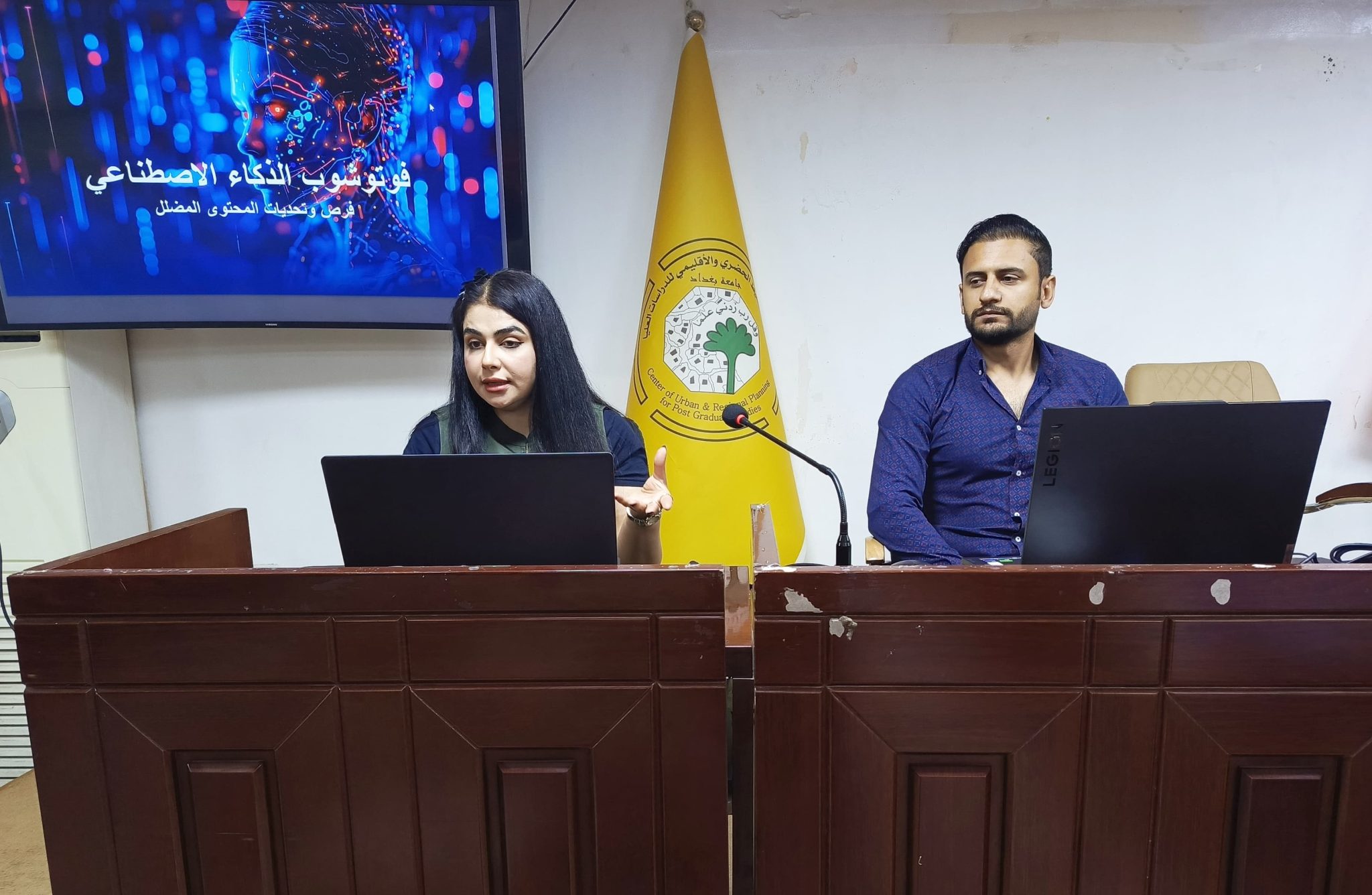
The Rehabilitation and Employment Unit at the Center of Urban and Regional Planning for Postgraduate Studies at the University of Baghdad held a workshop titled “Photoshop: Artificial Intelligence.” The workshop was presented by the center’s instructors, Dr. Zahraa Salem Sabri and Assistant Lecturer Hassan Hadi, with the attendance of a group of instructors, staff, and postgraduate students. The workshop aimed to introduce Photoshop as a professional image editing program used for modifying digital images and graphic design. It supports highly professional image editing, making it an essential tool for photographers, designers, and advertisers. Artificial intelligence (AI) is a branch of computer science that contributes to the development of systems capable of mimicking intelligent human behavior, such as learning, planning, creativity, and problem-solving.
AI is dedicated to automatically improving image quality and intelligently removing backgrounds. It also generates new images using techniques such as generative AI, modifying facial features and expressions, or even creating entirely fake faces. In her research, Dr. Sabry addressed legal and judicial aspects, such as digital forgery (deepfakes), which involves the falsification of images and videos produced using artificial intelligence. This is a crime in some countries, leading to prosecutions for defamation, fraud, or invasion of privacy. She highlighted copyright, intellectual property, fraud, and the misuse of modified images to deceive others (such as false advertisements or official documents). She noted that many countries are enacting new laws specific to artificial intelligence to protect rights and determine legal responsibilities when harm occurs.
For his part, Assistant Professor Hadi emphasized the need to raise awareness that images and videos can be fake, even if they appear realistic. This can be done by promoting critical thinking and not believing everything that is quickly circulated. He also encouraged verifying news and images through reliable sources and not randomly sharing personal or family photos online, especially on public accounts, after adjusting privacy settings on social networks to limit who can download or share your photos.
The workshop discussed the negatives and risks of Photoshop and artificial intelligence in distorting facts and deceiving the public, as well as manipulating identity and creating fake images without permission.
